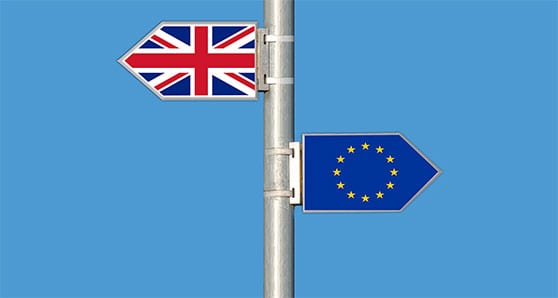 Great Britain’s Brexit decision in June is the first major, painful defeat for the German-control European Union. More will follow, to the general benefit of the people of Europe.
Great Britain’s Brexit decision in June is the first major, painful defeat for the German-control European Union. More will follow, to the general benefit of the people of Europe.
The decision shook both the British and European political and economic systems, but the British are proud people from a great country. The nation, steeped in an empire’s history, has endured two world wars to create one of the world’s largest economies. They could not continue to accept – despite any short-term economic damage arising from Brexit – the German domination of the EU.
Germany’s assiduous efforts to control Europe – this time by economic means rather than military force – show the nation is completely ignorant of history. Now Germany faces the imminent unravelling of the EU.
The EU is an unnatural and defective political and economic union. The member states have different political, legal, economic, military and cultural systems and standards. The people are strangers, without a sense of solidarity. So a democratic and prosperous end-to-end European Union was always unrealistic.
Germany took advantage of the financial crisis of September 2008 to fashion systemic reforms that created a kind of economic totalitarianism, mostly targeting weak periphery EU member states. The neoliberal austerity imposed by Berlin particularly hammered southern European countries.
Greece was the first victim of these incredibly absurd and irrational economic policies. Unemployment has increased dramatically to 26.8 per cent, and 36 per cent of the population lives below the poverty line.
In Italy, 24.4 per cent of the population faces the risk of poverty and social exclusion.
In Spain, 22.2 per cent of households are below the poverty line. More than one in three children – 2.6 million – face poverty and social exclusion.
In Portugal, one in four children lives below the poverty line and about two million people – 20 per cent of the population – live in poverty.
At the same time, Germany has enjoyed unprecedented economic benefits. Transferring investors’ money to low-risk German bonds meant yields on those bonds hit bottom and in some cases reached negative interest rates. That meant Germany not only didn’t pay to borrow, but investors paid to safeguard their money. So from 2010 to 2015, Germany saved €100 billion in borrowing costs, the equivalent to three per cent of its gross domestic product.
The European Union operates primarily in the interests of the hegemonic Germany, at the expense of other member states – particularly the southern European countries. The extremely high trade surpluses achieved by Germany (in 2013, it had a trade surplus of €200 billion) are the result of the great German economic machine and the scandalously unfair eurozone monetary system.
Germany has become a major international player and its political leadership has assumed that it represents other European countries, even if it hasn’t been asked to.
But Great Britain’s exit represents a fatal blow to the European Union and Germany. Britain is a major military power, a permanent member of the UN Security Council and was the third largest contributor to the EU budget, so its decision is hardly minor.
European Union institutions and the decision-making processes lack democratic legitimacy. They are inaccessible to ordinary European citizens. The founding treaties of the EU and the original core values have been grossly violated. A deep democratic deficit exists. The people of Europe don’t have any direct influence over key European Union decision-making institutions – the European Council and the European Commission – and there is no accountability to citizens. At the same time, the directly-elected European Parliament has no significant power.
The European Union has been reduced to a type of German colony. Despite the illusions cultivated in certain political circles, the EU isn’t willing to change or improve, or even acquire a democratic, social role.
So it is time for the enslaved countries of the EU to follow the shining example of Great Britain and break their shackles. Leaving the EU would be like liberation, provoking widespread hope and optimism.
Isidoros Karderinis, born in Athens, is a novelist, poet and economist with postgraduate studies in tourism economy. His work has been widely published and translated.
The views, opinions and positions expressed by columnists and contributors are the author’s alone. They do not inherently or expressly reflect the views, opinions and/or positions of our publication.

